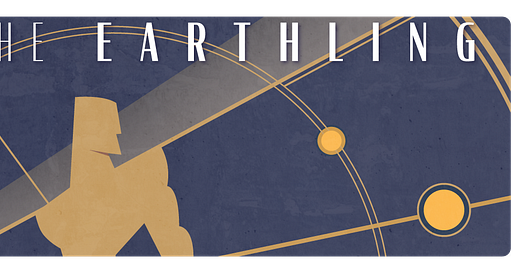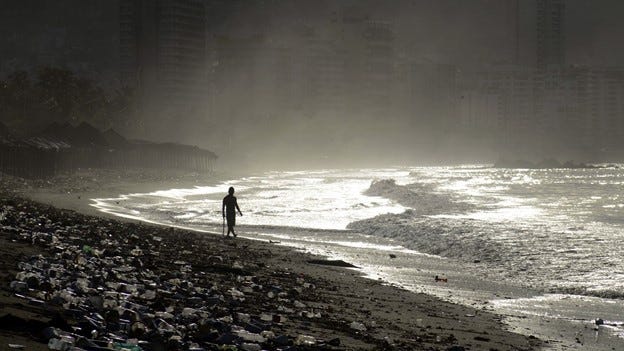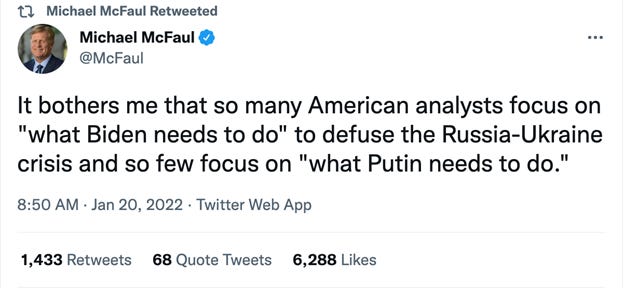The Earthling: Fiber optic apocalypse; China hawks’ awkward silence; global regulation of vaccines and plastic, etc.
While most of the world’s people have seen their real incomes drop during the pandemic, the combined wealth of the ten richest men in the world has more than doubled, passing the $1.5 trillion mark, according to a report published by Oxfam. “Billionaires have had a terrific pandemic,” said one Oxfam official.
China hawks have been known to worry that China will share its finely honed surveillance software with the world’s authoritarian governments as part of its (alleged) master plan to smother liberal democracy. One thing these hawks never explain is why they think China would do a better job of empowering authoritarians than the free market is already doing. Consider the Israeli company NSO Group, maker of Pegasus spyware—which, if it infiltrates your smartphone, can not only monitor phone calls, emails, text messages, and app usage, but turn your phone’s camera or microphone on without your knowledge. Within the past 10 days we’ve learned that: (1) Dozens of journalists and human rights activists in El Salvador have for months carried around smartphones monitored via Pegasus; (2) Human rights advocates in Bahrain and Jordan have suffered the same fate. NSO doesn’t disclose its clients, but it wouldn’t be shocking if the governments of El Salvador, Bahrain, and Jordan turned out to be among them. In any event, the people who fret about Chinese Orwellian software don’t seem to have risen up in a chorus of protest against NSO’s Orwellian software. Maybe China hawks plan to wage Cold War II in accordance with the same foundational tenet that guided America through Cold War I: In fighting a global war in defense of freedom, be willing to abide, and even abet, any suppression of freedom committed by governments that claim to be on your side in that war.
More than 70 companies, including Coca-Cola and PepsiCo, called this week for a global treaty to reduce plastic pollution. Their statement called next month’s consideration of such a treaty by the UN Environment Assembly “the decisive, most auspicious moment to turn the tide on the global plastic pollution crisis.” Experts predict that the annual flow of plastics into the ocean could, judging by its current rate of growth, triple over the next 18 years, reaching 29 million tons. Here’s a picture of a Mexican beach that’s on the receiving end of plastic disposal (taken from the Axios story about this):
The regulation of Covid vaccines may soon become a more global affair, according to a piece published in Stat News this week. Helen Branswell reports that, according to a senior official at the Food and Drug Administration, the FDA expects to participate in an international program to coordinate vaccine updates as new Covid variants arise. The program could be modeled on a decades-old program that determines which novel strains of influenza should be targeted by each year’s flu shots. International oversight can help ensure that the composition of new vaccines doesn’t reflect a purely “commercial decision” on the part of manufacturers, according to one official at the World Health Organization.
Former US Ambassador to Russia Michael McFaul has a question, and the Earthling has an answer. Here’s the question:
Here’s one answer: Because American analysts are American analysts—so they have a much better chance of influencing American policy than of influencing Russian policy. Now here’s a question for McFaul: Why are you encouraging Americans to spend less time thinking about their government’s policy and trying to influence it? Earthling readers should feel free to weigh in on that question in the comments section below. (The Earthling is entertaining a somewhat cynical answer to it, informed by familiarity with McFaul’s hawkish leanings, and will share that answer next week if the comments section seems to reflect reader interest in the subject.)
Using “solar geoengineering” to combat global warming—releasing sulphur particles into the atmosphere to dim the sun’s rays, for example—is a bad idea, according to a letter signed by 60 experts and released this week. As the world struggles to rein in carbon emissions, geoengineering has emerged as a tempting plan B. But, according to the letter, solar geoengineering at global scale could reduce beneficial monsoon rains and crop yields and dry up the Amazon. The letter and an accompanying commentary call for “an international non-use agreement” on solar geoengineering.
Tonga could be off the grid for weeks thanks to the volcano that erupted Saturday and ruptured the fiber optic cable on which the tiny archipelago relies for internet access. This isn’t the first time Mother Nature has messed with fiber optics; in 2012, Hurricane Sandy damaged the cluster of undersea cables linking North America and Europe. But most such disruptions are caused by accidental human intervention. In fact, in 2019 Tonga itself was cut off from the internet for eleven days, apparently as a result of an oil tanker dragging its anchor along the ocean floor. And then, in theory, there’s that third category of fiber optic disruption: non-accidental human intervention. Earlier this month, the British Navy warned that Russian submarine activity was consistent with intentions to “put at risk and potentially exploit” underseas cables. Whatever Russia’s intentions in that case, one can certainly imagine a future situation in which severing fiber cables would be a hostile act. And, just as important, one can imagine a situation, amid great international tension, when a nervous national leader misinterprets a communications breakdown as a hostile act and responds either in kind or in some other hostile manner—thus, perhaps, triggering various kinds of unfortunate chain reactions. Given that 95 percent of intercontinental internet data travels through undersea fiber, the opportunities for both dangerous mischief and imagined dangerous mischief would seem to be ample. And this fact underscores, among other things, the value of keeping international relations reasonably harmonious. If you want to see how rapidly the world has gotten to its current reliance on undersea fiber—and, by implication, how little time the world has had to ponder the consequences of this new global nervous system—watch the short video below.
I was on a Zoom panel this week (which included such illustrious figures as former California Gov. Jerry Brown!) discussing how to apply “strategic empathy” to the Ukraine-Russia crisis and to relations with Russia more broadly. I may write about that subject in Monday’s newsletter, but meanwhile, here’s the panel discussion.
Note: My weekly conversation with frenemy and ideological nemesis Mickey Kaus can be found after 11:00 p.m. US Eastern Time (give or take an hour) this evening on The Wright Show podcast feed or at bloggingheads.tv or the bloggingheads YouTube channel. And our after-podcast podcast—the Parrot Room conversation, which is available to paid newsletter subscribers and Patreon supporters—can be found shortly thereafter by going to the NZN Substack home page—right here—and clicking on this week’s Parrot Room episode. There you’ll also find a way to get the Parrot Room as a feed in your podcast app.
Illustration by Clark McGillis






If I had a guess about this McFaul stuff, I’d say it seems like an attempt at reframing from criticize those who you can effect to criticize those who are the most evil, by which he means not America.
Also, I’ve been noticing a more strident tone from people in McFaul’s camp. Ben Rhode’s, on his podcast Pod Save The World, lamented about how he was tired of criticism of America and went on about how people across the world look to America as a force for good. It all consolidates around this narrative of Democracy vs Autocracy, which again slots America in as the good guy and Russia, China, etc. as the bad guys.
Is China a threat in another way though? What if China grows more powerful economically and militarily and significantly more powerful than the US? What if it controlled the SWIFT system or enforced the use of the digital yuan for international trade? If you do something China doesn’t like you get cut off from the international system or they transfer your digital reserves out of your country with the click of a button. What if they started restricting US trade rights with Asia and reduced our wealth as a result? What if they started interfering in the politics of Canada or tried to move military forces/missiles there? These are all echoes of things the US itself does. It’s possible China won’t grow that powerful or that it won’t do what we’ve done but I don’t think we can take that risk. If we had isolated China earlier: not let them into the WTO, worked on a balancing coalition sooner, etc. we might not have to worry about it now. Clearly China has shown a willingness to throw its weight around and use whatever tools it has at its disposal to pressure other countries. Why wouldn’t that eventually become untenable to the US?
I would advocate isolating Russia too if it had a similar capability and if Europe were less capable and as important to US prosperity as Asia is. The fact is none of those things are true so we should basically shut down NATO and move on. So I don’t think we can equate the threat from Russia and China.